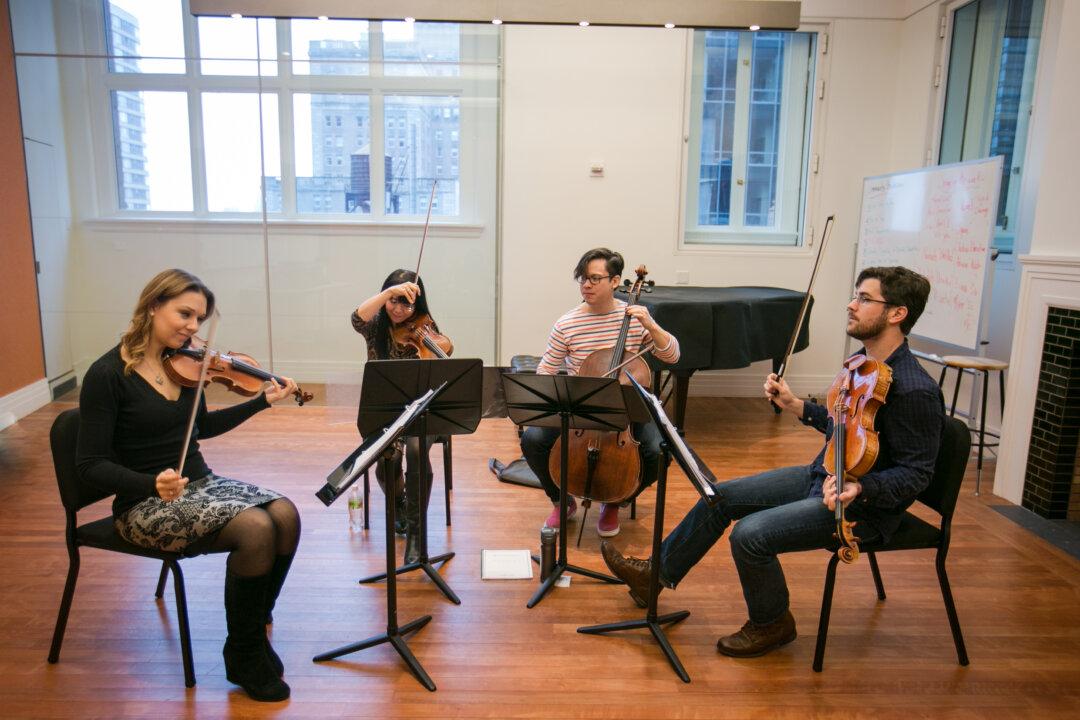NEW YORK—“It’s a really good time to be a string quartet fan,” said cellist Andrew Yee. “It’s just amazing to hear what keeps on coming out of the quartet realm.”
There is a string quartet for every taste today and a never-ending fountain of interpretations of the wide-ranging repertoire. Established quartets of decades continue to evolve, and enterprising young quartets cut their own paths every season.
The form, genre, and ensemble of the string quartet continues to be enigmatic, and each quartet has its own unique personality as an ensemble.
Yee is a founding member of the Attacca Quartet, an ensemble that is fun and sincere in their love for music making.
Formed at Juilliard in 2003, the quartet is considered young, though they are frequently noted for their mature sound. Like the most interesting quartets, the members are all fiercely individual, but come together to present one coherent point of view. Amy Schroeder plays first violin, Keiko Tokunaga is on second violin, and violist Nathan Schram joined the quartet about a year and a half ago.
Not very long after the quartet was established, the members tackled the complete works of Haydn, which is about as classical as the repertoire can get. The quartet members (and the reviews) credit it in helping establish their footing as a project-based quartet, gain musical maturity, and speak the language of string quartets—the interplay of the four voices and their combined tonal characteristics—that much more fluently.
From the beginning, the quartet has also played works by living composers, works that they approach with as much seriousness and search for meaning as any of the classics. This season and beyond, they are endeavoring to play the complete works of living composers they are genuinely passionate about, like John Adams and Caroline Shaw, as well as Beethoven, and any other music they may discover and find they love.
“Today’s music is just as exciting as the masters’ of the past, and if we can help find those masters of the future that are in some way descendants of Haydn, that’s even better,” Schram said.
Though the group was named on a whim (before a musical competition, Yee and Schroeder went through the dictionary to see which words sounded good in front of “quartet”), “attacca” is apt. The term denotes moving quickly from one musical passage to the next, and this quartet does just that.
“There’s something nice about always having something new, burning a hole in our binders all the time,” Yee said.







